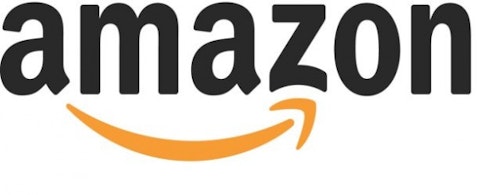Amazon.com, Inc. (NASDAQ:AMZN) is the world’s largest online retailer. The company’s stock performance has been cyclical in the recent past. It is also facing stiff competition from other e-commerce players as it scales up its presence and infrastructure through a lot of investments, even at the expense of profits. There is still a lot of value in the stock, however, which makes it a winner in the long term.
First quarter results
Amazon’s primary source of revenue is the sale of a diverse range of products and services to customers. It had annual sales of $60 billion in 2012 and has been registering impressive growth over the years. According to the company’s latest financial results, revenue rose 22% to $16 billion, but growth slowed from last year. The reason behind this phenomenon was attributed to the investment of the company to create new infrastructure and newer avenues for growth. This can be validated by looking at Amazon’s heavy investment in cloud computing technologies and digital content.
One of the main positives of the company is its huge cash pile, which currently stands at $7.9 billion. This will allow Amazon to make investments and acquisitions whenever required and also earn good returns. One recent acquisition is Goodreads.
The Amazon-Goodreads deal
Recently, Amazon.com, Inc. (NASDAQ:AMZN) acquired Goodreads, a social network for books. Goodreads is a popular book networking site with more than 16 million members who have written over 23 million reviews. People review and rate books and can also follow others with similar interests. The company was started in 2007 and has created a niche for itself as a one-stop source of recommendations for all books. The terms of Amazon-Goodreads deal have not yet been disclosed, though the deal is expected to close in the next quarter and may cost Amazon as much as $200 million.
This move by Amazon.com, Inc. (NASDAQ:AMZN) came injust weeks after another book recommender site, Bookish, was launched with the intent to create stronger link between authors, publishers and readers. Amazon, with its deep pockets, regularly makes such acquisitions as a means of growth. But this deal is significant because Amazon already owned some or all of Goodread’s competitors, like Shelfari and LibraryThing. Market reactions to the deal were not very jubilant and some of the readers expressed their concerns that Amazon might influence their book purchases by getting to know about reading habits from Goodreads.
What Amazon is getting from the deal?
It seems that the deal has been beneficial to both sides, but the advantages are slightly more tilted towards Amazon. For Amazon, the deal definitely provides a social angle to its website. While Amazon also has an extensive list of book reviews by its members, it did not have the social layer that will now be provided by Goodreads. Moreover, the deal will bring in additional customers and readers to Amazon’s website who were only following Goodreads up until now. It will further consolidate Amazon.com, Inc. (NASDAQ:AMZN)’s power to determine which authors get exposure for their work. However, it is interesting to note that Amazon’s own book reviews faced issues due to their quality and sometimes questionable authorship. After acquiring Goodreads, this problem may be sorted out as Goodreads is a more trustworthy brand. From the point of view of Goodreads, it was looking for a new platform and the support it needs to continue to grow and innovate.
The peer market
Google Inc (NASDAQ:GOOG) has the largest number of users across the globe in terms of cloud computing services. It also recently announced the launch of a same-day shipping service, an experiment called “Google Shopping Express” that will start off as a free service during its San Francisco pilot stage. Google entering e-commerce is a big blow to Amazon; with a healthy $40 billion in the bank, Google is set to venture into the e-commerce space and take a chunk out of the $65 billion in online shopping revenue that Amazon earns. Google is trying to dominate the entire Internet space and Amazon will have to spend more to keep up with Google’s new venture.
eBay Inc (NASDAQ:EBAY) is also giving Amazon’s bottom line a hard time as it changes its business model to same day delivery. It, along with Wal-Mart Stores, Inc. (NYSE:WMT), has generated more than $500 million in adjusted free cash flow last quarter. That means that most of Amazon’s competitors are building a good base of cash stock pile to invest in infrastructure later on. The company is expected to handle more mobile transactions in the future. These transactions already reached $13 billion last year and is set to grow more. Cross-border transactions also constitute 20% of eBay’s business, which is a positive sign for investors.
Conclusion
To conclude, the Goodreads deal seems to be a good move by Amazon.com, Inc. (NASDAQ:AMZN). But the main threat comes from Google as it plans to enter aggressively in the e-commerce market which is Amazon’s lifeline. Nevertheless, Amazon has still extremely strong fundamentals and efficient management. Investors are willing to wait for profits while the company invests in growth. Mr Bezos’ vision is to make Amazon a $1 trillion e-commerce company by 2016. This makes me believe that the stock is overpriced currently but sustainable in the long term, and this makes the company a winner.
Tanya Kanodia has no position in any stocks mentioned. The Motley Fool recommends Amazon.com, eBay, and Google. The Motley Fool owns shares of Amazon.com, eBay, and Google.
The article Amazon Will Win in the Long Term Against All Odds originally appeared on Fool.com.
Copyright © 1995 – 2013 The Motley Fool, LLC. All rights reserved. The Motley Fool has a disclosure policy.






